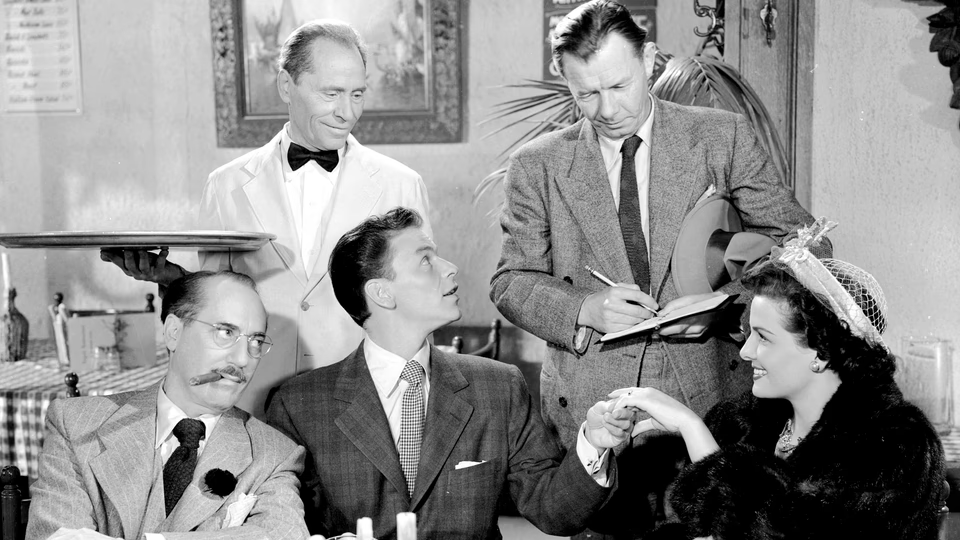Double Dynamite

Double Dynamite is a triumph of miscasting—proof star power can’t overcome fundamental creative gaffes. Here is a film that takes three Hollywood icons—Frank Sinatra, Jane Russell, and Groucho Marx—and suffocates everything that makes them entertaining.
The plot—such as it is—sees Sinatra play a timid bank teller who goes into hiding with Marx, a waiter at his usual lunch spot, after his reward for saving a bookie’s life coincides with a shortage at his bank, leaving his girlfriend, Russell, believing he’s turned bandit. It’s a premise that might have worked as screwball comedy, but the film seems embarrassed by its own potential for zaniness.
Sinatra, filming during his career’s lowest ebb in 1948 (though the film went unreleased until 1951), looks as uncomfortable as his boxy double-breasted suit. The role calls for milquetoast, but Sinatra can only manage miserable. Every line reading suggests a man who knows he’s in a turkey.
Russell is inexplicably required to play demure, robbing her of any opportunity to project her considerable screen presence, while the film simultaneously winks at her physique (a police dispatcher’s “extremely well distributed” description lands with a thud). Even Marx, traditionally a force of comedic anarchy, is reduced to a peripheral figure lobbing occasional one-liners from the sidelines.
The film occasionally shows signs of life—Nestor Paiva outshines everyone as a perpetually sunglassed bookie, and Sinatra and Russell’s musical number provides a brief glimpse of the chemistry they’re capable of when not straitjacketed by their roles. But these moments only serve to highlight what might have been if the film had embraced its stars’ natural personas instead of fighting against them.
Even at 80 minutes, Double Dynamite still manages to feel overlong. It’s the kind of movie where a lot happens but nothing matters. Consider the extended bit where Marx hatches a plot to deposit Sinatra’s money at Sinatra’s bank, necessitating Marx to pose as a millionaire and take up a fancy hotel suite. Good comedy amuses as it advances the story. Like most of the film, these scenes fail to do either.
The film’s title, changed from It’s Only Money in a crass reference to Russell’s figure, exemplifies everything wrong with the project: it’s trying to sell sizzle while forcing its stars to act like they’re at a church social.